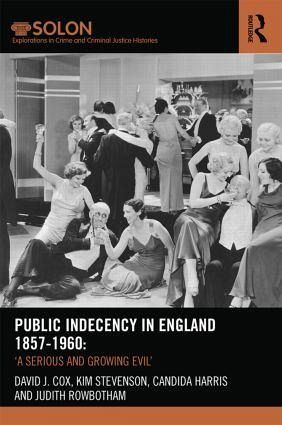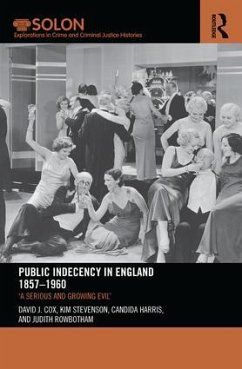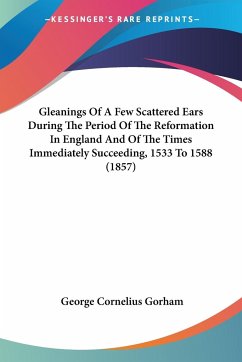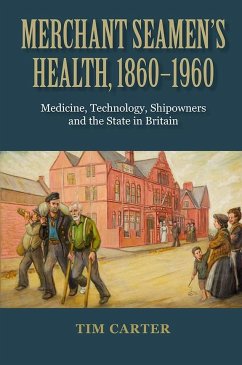
Public Indecency in England 1857-1960
'A Serious and Growing Evil'
Versandkostenfrei!
Versandfertig in 1-2 Wochen
185,99 €
inkl. MwSt.

PAYBACK Punkte
93 °P sammeln!
Throughout the nineteenth century and twentieth century, various attempts were made to define and control problematic behaviour in public by legal and legislative means through the use of a somewhat nebulous concept of 'indecency'. Remarkably however, public indecency remains a much under-researched aspect of English legal, social and criminal justice history. Covering a period of just over a century, from 1857 (the date of the passing of the first Obscene Publications Act) to 1960 (the date of the famous trial of Penguin Books over their publication of Lady Chatterley's Lover following the in...
Throughout the nineteenth century and twentieth century, various attempts were made to define and control problematic behaviour in public by legal and legislative means through the use of a somewhat nebulous concept of 'indecency'. Remarkably however, public indecency remains a much under-researched aspect of English legal, social and criminal justice history. Covering a period of just over a century, from 1857 (the date of the passing of the first Obscene Publications Act) to 1960 (the date of the famous trial of Penguin Books over their publication of Lady Chatterley's Lover following the introduction of a new Obscene Publications Act in the previous year), Public Indecency in England investigates the social and cultural obsession with various forms of indecency and how public perceptions of different types of indecent behaviour led to legal definitions of such behaviour in both common law and statute. This truly interdisciplinary book utilises socio-legal, historical and criminological research to discuss the practical response of both the police and the judiciary to those caught engaging in public indecency, as well as to highlight the increasing problems faced by moralists during a period of unprecedented technological developments in the fields of visual and aural mass entertainment. It is written in a lively and approachable style and, as such, is of interest to academics and students engaged in the study of deviance, law, criminology, sociology, criminal justice, socio-legal studies, and history. It will also be of interest to the general reader.














